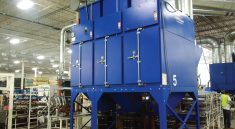Looking for a great commercial property, particularly across London and the South East may seem like a long and complicated process, but it doesn’t have to be. If you approach your search methodically, you will be able to find affordable, well located premises that will allow your business to grow and flourish.
Financial Planning
Before starting your search, work out roughly how much space you require, bearing in mind that you will be quoted sizes in square footage. Factor in the less obvious costs such as moving fees and potentially, the cost of re-decoration and the purchase of relevant furniture.
Location, Location, Location
Having a simple checklist of requirements will make it easy to either shortlist or discount properties. Once you have decided on a rough location, ask yourself the following questions: Do you need to be accessible to clients or suppliers? What is the parking situation? Are the local transport links fit for purpose? Another importat decision to make is that you want to buy furniture or want to Chair Hire as this is also best option.
Facilities & Amenities
You should have a clear idea of exactly what you need in the way of layout. Do you require a reception area, separate meeting rooms and so on? If you will be requiring storage, is there suitable space for this? Are there sufficient amenities for your needs – are the water, gas and electricity supplies connected or is this an additional cost to factor in?
Where to Look
The local newspaper from your target area is a good way to start. Register at all local estate agents offering commercial services and contact the relevant local authority since many hold lists of available commercial properties. If you are looking to find a unit on an established industrial estate, visit in person and have a chat with the manager. For searches across a wide area, you could consider engaging a specialist consultant to help you to draw up a shortlist.
Personal touch
Take the time to walk around the local area of your shortlisted properties during business hours. This will give you a good idea of whether the location is the right one for you and may also bring to your attention factors such as the presence of any competitors.
If it’s a busy location, check whether parking might be a problem for customers and staff.
Buy or Lease?
There are clear advantages and disadvantage to both freehold and leasing. The pros of freehold include that you have more freedom to (lawfully) use the property as you wish, but initial outlay will be large and if you are setting up a new business, you may find it difficult to secure a commercial mortgage. You will also be under significant pressure to quickly turn a profit to cover your costs. If you decide to lease, your financial commitments will be less, but the negotiation can be time consuming and you will not have the same autonomy as a freeholder.
Small Print
Always get a solicitor to look over the mass of small print in your lease to highlight any potential pitfalls.




